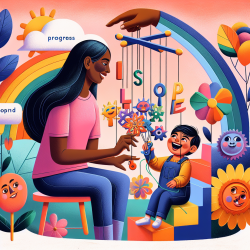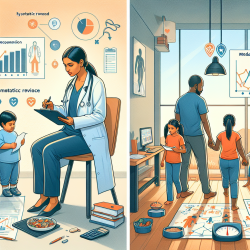Introduction
In a world where children are surviving but not necessarily thriving, particularly in resource-limited settings, the need for early identification of developmental disabilities is more critical than ever. The study "Experiences of identifying pre-school children with disabilities in resource-limited settings – an account from Malawi, Pakistan and Uganda" provides valuable insights into the challenges and opportunities for practitioners working in these environments.
Understanding the Challenges
The research highlights several barriers to early identification and support for children with disabilities in Malawi, Pakistan, and Uganda. These include:
- Community Perceptions: Stigma and local beliefs often hinder parents from seeking help, creating a vicious cycle of unmet needs and lack of demand for services.
- Limited Professional Training: Many health workers and educators lack the necessary training and tools to identify and refer children with developmental disabilities effectively.
- Inadequate Infrastructure: The absence of clear referral pathways and support structures further complicates the situation, leaving families without the necessary resources to support their children.
Opportunities for Improvement
Despite these challenges, the study also points to potential solutions that can be implemented to improve outcomes for children with disabilities:
- Community Engagement: Raising awareness and reducing stigma through community education can empower parents to seek help and support for their children.
- Professional Development: Training programs for health workers and educators can enhance their ability to identify and support children with disabilities, creating a more responsive service supply.
- Collaborative Approaches: Encouraging collaboration between health, education, and social services can create a more integrated support system for families.
Implementing Change
For practitioners looking to improve their skills and outcomes for children with disabilities, the following steps can be considered:
- Engage with community leaders to address stigma and promote understanding of developmental disabilities.
- Participate in or advocate for professional development opportunities focused on early identification and intervention strategies.
- Collaborate with other sectors to create a comprehensive support network for families.
By taking these steps, practitioners can contribute to a more inclusive and supportive environment for children with disabilities, ultimately improving their quality of life and future prospects.
Conclusion
The journey towards effective early identification and support for children with disabilities in resource-limited settings is challenging but not insurmountable. By leveraging the insights from this study, practitioners can make data-driven decisions that lead to better outcomes for children and their families.
To read the original research paper, please follow this link: Experiences of identifying pre-school children with disabilities in resource-limited settings – an account from Malawi, Pakistan and Uganda.










